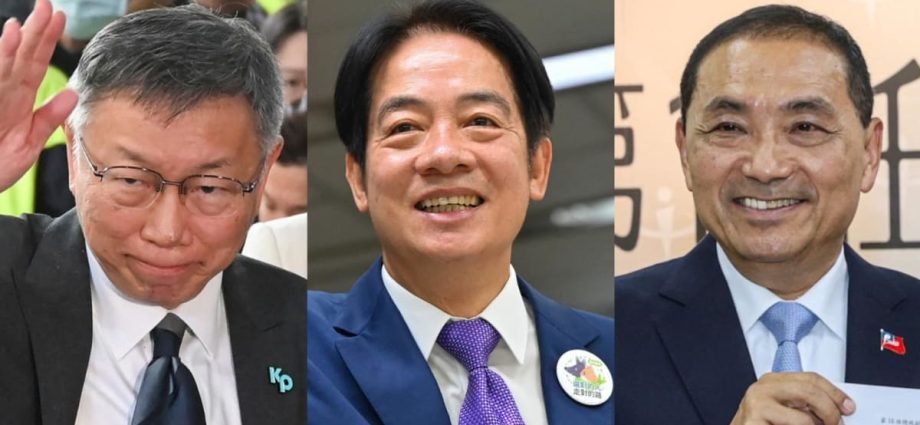
WHAT ELSE IS HAPPENING ON ELECTION DAY?
Other than choosing the president, voters will also be handed two more ballots that will decide the make-up of the single-chamber legislative body.
One will pick their local lawmaker, the other will choose their preferred political party – which will decide how many legislators-at-large each party gets. There are 113 seats in the legislature, with the DPP currently holding over 60 and the KMT under 40.
If neither party can win at least 57 seats, the next president will find it difficult to pass Bills and effect much meaningful change.
One quirk of the system is the new lawmakers will start their term from February, which means outgoing President Tsai will need to work with a newly composed legislature for the final months of her tenure. That tension could prompt a return to the rambunctious scenes Taiwan’s lawmakers are renowned for.
WHAT HAVE THE US AND CHINA SAID ABOUT THE ELECTION?
Concerns around election interference by external forces have been a consistent feature of the campaign.
US officials in charge of relations with Taiwan have repeatedly said Washington has no preferred candidate and they will respect the voters’ choice.
China has been more forthright. Beijing views Taiwan as part of its territory, a claim it has vowed to back up with the use of its military, if necessary. In November, China’s Taiwan Affairs Office urged voters to “oppose independence” and make the right choice when facing peace or war, prosperity or recession, according to a China Central Television report.
Liu Pengyu, spokesman for the Chinese embassy in the US, has warned the outcome of January’s elections may affect Beijing’s relations with Washington. President Joe Biden made clear to Xi during a meeting in November that his government would oppose any Chinese attempt to sway voters.

